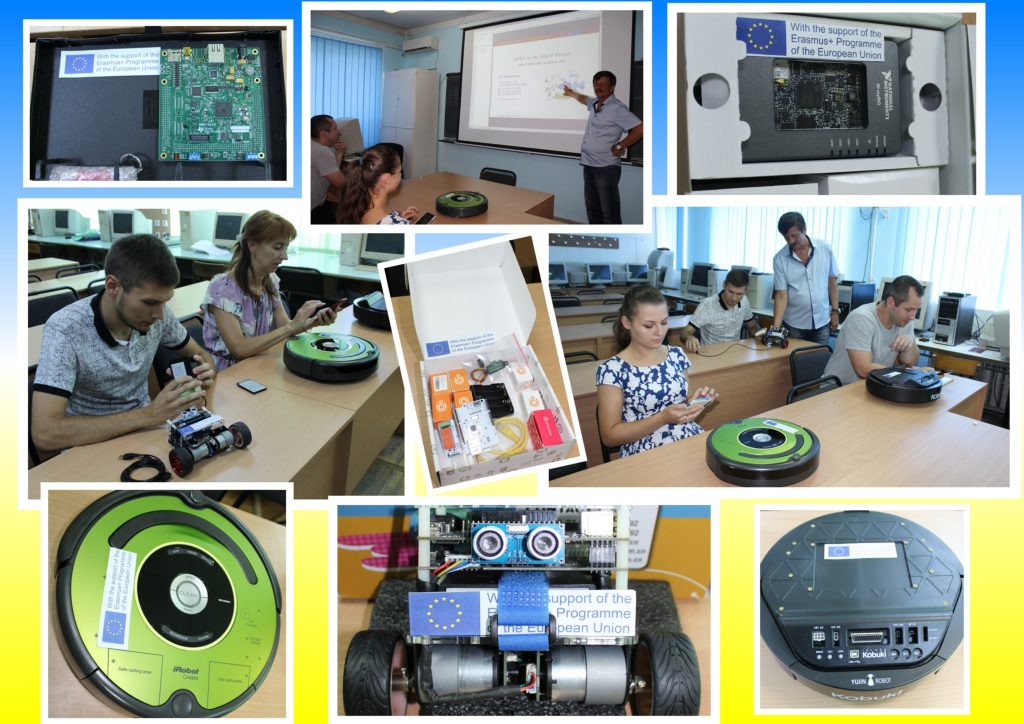Opening of a modern laboratory of Cyber-physical systems in ZNTU
Modern computer technologies are rapidly moving forward, engaging in more and more areas of life. Therefore, the emergence of cyber-physical systems – computer-controlled systems of physical objects of an analog nature has become a natural continuation of the transition to a qualitatively new level of engineering and technology in Industry 4.0. This synthesis of digital and analog will lead to large-scale changes in the quality and comfort of people lives. Thus, the study and the development of cyber-physical systems is one of the highest priority areas at the moment.
Since October 2016, the Department of computer systems and networks of National University “Zaporizhzhia Polytechnic” has become one of the participants of the large-scale International Educational Project ERASMUS + ALIoT “Internet of things: a new curriculum for needs of industry and society”.
In June 2019 under the supervision of a PhD, Assoc. Prof., Head of the Department of Computer Systems and Networks Kudermetov R.K. the laboratory of Cyber-physical systems (3rd building, room 52) was established within the ALIoT project. The reliable hardware basis of laboratory was equipment acquired within the project: “The cyber-physics “More experiments” kit, the TMS570LS31HDK TMS570LS31x Hercules development kit, the NI myRIO Student Edition device, iRobot Create 2 and Self Balancing Robot Terasic DE10 Nano robot and iClebo Kobuki Mobile Research Station.
The acquired “The cyber-physics “More experiments” kit and the Arduino UNO boards available at the department allow the students of the department to create systems that work independently: study the world, make specific decisions and based on this control other devices, exchange data, and move.
The TMS570LS31HDK development kit shows students different ways of testing and measuring. The NI myRIO Student Edition device allows learning and implementing multiple design concepts with one device.
Using iRobot Create 2 robots teach students how to operate the platform using either a regular PC or an Arduino microcontroller or a Raspberry Pi mini-computer. Self Balancing Robot Terasic DE10 Nano robots demonstrate students how FPGAs can be used to provide application-specific I/O interfaces.
The iClebo Kobuki mobile research station teaches students how to operate robots using Robot Operating System (ROS), an open source meta-operating system for robots.
Thus, students of the Department of Computer Systems and Networks of the National University “Zaporizhzhia Polytechnic” have an excellent opportunity to work with the latest equipment, study its features and create new solutions based on existing modern platforms.
